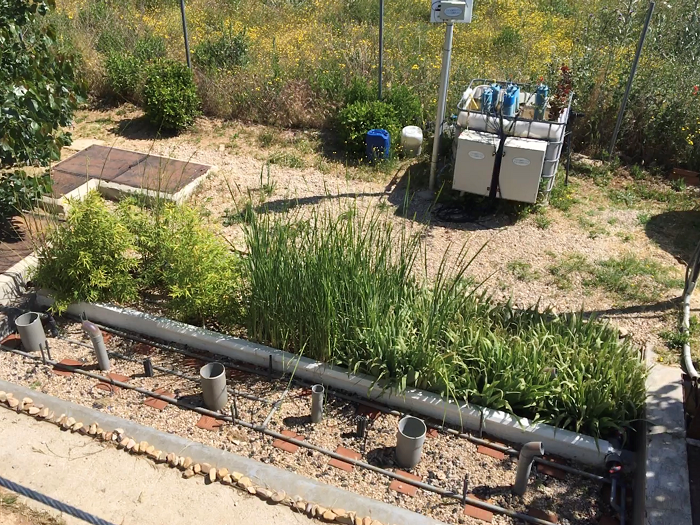Ana Karina Boltes Espínola is one of thousands of women who tomorrow celebrate a day that perhaps we shouldn’t have to celebrate: International Women in Engineering Day.
Though traditionally a male-dominated field, as Ana Karina explains, fortunately, “Things are changing and there are a lot of women these days.”
Boltes is head of the Analytical Chemistry, Physical Chemistry, and Chemical Engineering department at the Universidad de Alcalá; she is also a researcher and member of the Bioe Group.
In the early 90s, because it was impossible to study chemical engineering in Spain, Boltes studied in her native country of Paraguay before coming to Spain to complete her doctoral thesis in a country where chemical engineering did not exist as an undergraduate program. “I had to validate my official degree with a bachelor’s in Chemistry,” she explains.
“I started my doctoral thesis at the Universidad de Alcalá when I arrived in 1995. I was interested in everything related to wastewater. It was difficult because there were no chemical engineers and there were very few women, especially in managerial positions,” says Boltes.
A professor, researcher, manager, and mother of two, Boltes is passionate about her work. She “loves her job and [has] fought hard to achieve it.” Traditionally, “engineering attracts more men. I have a son and a daughter, and my son has always been clear about wanting to pursue engineering, unlike my daughter,” she points out.
“For women to be able to access management positions, it’s important to understand that we have other needs, a different rhythm of life. We like to be home with our children. We want it understood that everyone deserves to be happy in their work, both professionally and personally. We need flexibility in our hours, though not in our obligations. Fortunately, at the university we have considerable flexibility,” she explains.

METland ® facility set up at IMDEA Agua, which purifies the research center's waters.
Regarding the quota policy, Boltes finds it “somewhat offensive. I think it’s the wrong approach, though there may not be another way. It’s important to understand that women provide a complementary and very necessary point of view. We analyze situations differently to find solutions. I don’t like that there’s a number because the law says so, but rather because people are aware that this is beneficial and natural,” says Boltes.
“In Latin America it is much more difficult than here. It has been harder for some of my colleagues. Several classmates from college began working, but not in the field; they did other things, they had to redirect their careers. Some are entrepreneurs, but they don’t work in the engineering field they studied,” she explains.
“We have yet to break the glass ceiling, but there are more women, more female students in technical and scientific programs. As you go up the hierarchy to executive positions, there are fewer, but it’s changing.” Still, Ana Karina Boltes is optimistic. Today, there are a lot more women. “I’ve noticed it in the master’s program I teach. There are more students and more women in positions of responsibility at partner companies.”
As a professor at the Universidad de Alcalá, Boltes enjoys having contact with students and overseeing the work. She is also a researcher at the Bioe Group , which consists of professors from the Universidad de Alcalá and researchers from
IMDEA Agua. Headed by Abraham Esteve Núñez, this multidisciplinary group of biochemists, engineers, biologists, chemists, and environmentalists focuses on microbial electrochemical technologies (MET) and their applications in wastewater treatment, soil and groundwater decontamination, and biosensor development.
These technologies are based on the metabolism of electroactive bacteria, which degrades organic matter while generating an electrical current. The team has already developed METland® technology, a means of treating urban wastewater in small communities with no external energy input to obtain pathogen-free water for irrigation.
It is a hybrid between the concept of unnatural, manmade wetlands and microbial electrochemistry. These systems are suitable for small towns, campsites, hotels, college campuses, and they are highly aesthetic. “This is a non-aggressive system that blends into the landscape, requiring very little maintenance. Last year, we finished second in a major European biotech competition,” Boltes concludes.
